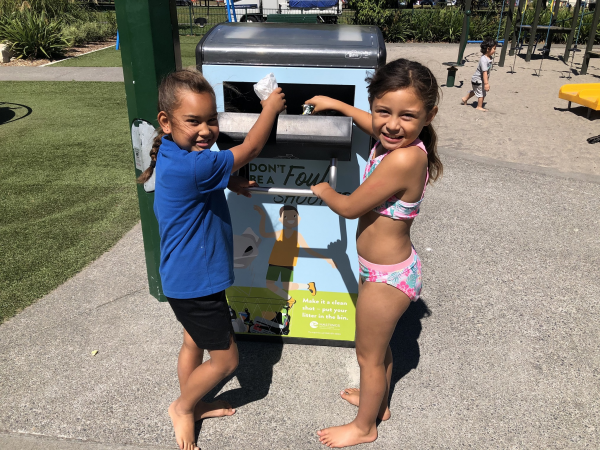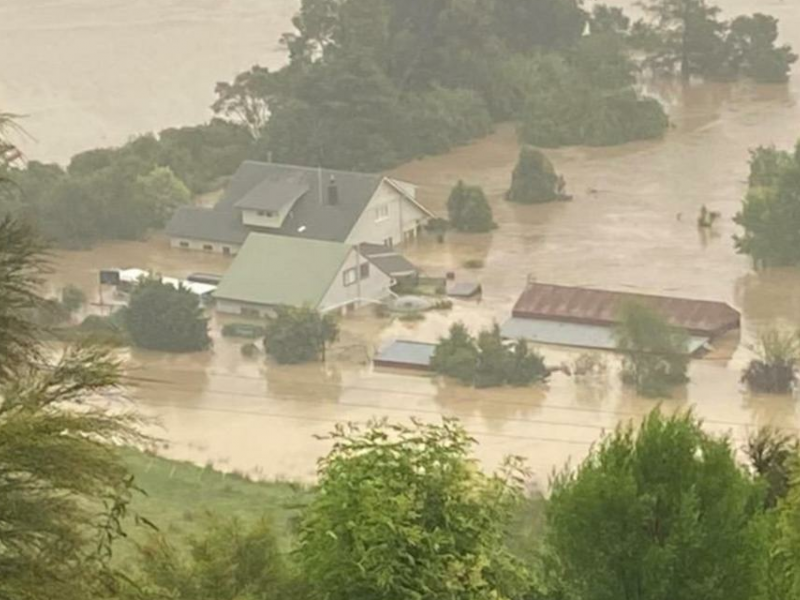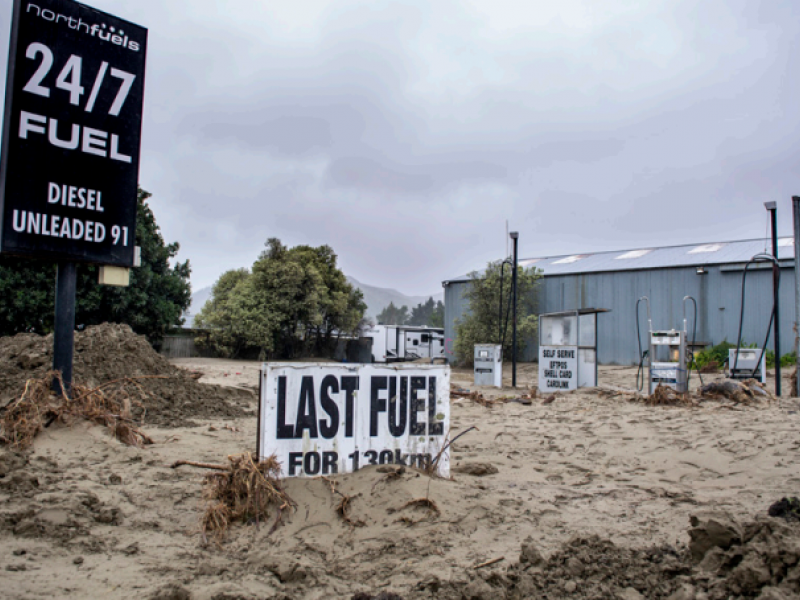Big Bellies help fight litter
Solar-powered Big Belly Bins have arrived in Hawke’s Bay, ready to compact picnic rubbish in Hastings’ three busiest parks.
Three of the litter bins are on trial in Hastings District Council’s premier parks; one each in Flaxmere Park, Cornwall Park, and Havelock North Village Green.
The smart bins compact rubbish which means less emptying (saving truck trips) and no overflow. Because the rubbish is locked inside, litter cannot be wind-blown out of the bins.
The bins alert staff on a phone app when they are near full, which means no wasted trips checking on bins that don’t need it, and, during busy times, the team is
aware when bins need attention.
They have been ‘dressed’ in artwork from Council’s anti-litter programme, which makes them stand out. “You can’t miss them,” says councillor Wendy Schollum, who is driving the campaign.
“Because they are very obvious and a bit different we are hoping people will be attracted to using them, leading to less loose litter in our parks. It fits with our
‘get it in the bin’ campaign.
“We are working hard to keep Hastings beautiful, especially as we hold the Keep New Zealand Beautiful Supreme Award for our stunning district, and keeping litter out of our parks and off our streets is a major part of that.”
Schollum says Council wants park users to take recyclable rubbish home for sorting into their kerbside collections and use park litter bins for non-recyclable rubbish. “We remain focused on keeping as much rubbish out of the landfill as possible, but we think these bins are a great way to manage rubbish that people can’t take home.”
There are now about 500 of the USA-made Big Belly Bins across New Zealand, said Rafael Dias, the Belly Bins North Island Manager from environmental engineering company Manco Group, who was in Hastings on Tuesday to install the bins.
A solar panel on the top of the locked bin provides power to the compactor and in-built computer. The bins can hold the equivalent of 10 times the rubbish of a standard public litter bin (up to 600l litres of rubbish). They will be in the parks for two months, after which Council will analyse the data from the bins to measure their success before
deciding whether to lease them longer term.



























